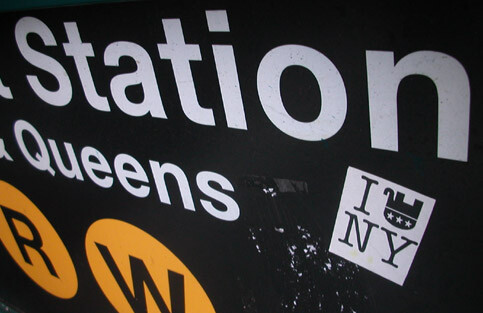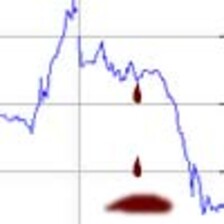The Electronic Intifada 31 August 2004

Imagine a story in the Los Angeles Times about two black, inner-city boys, aged 19 and 21, titled, “Two Men Charged in Major Crack Syndicate.” You read that neither had a history of gang affiliation, and that one of them, in fact, worked 60-hour weeks at a bookstore. Yet an undercover policeman, who had spent the past year tempting them with a fail-safe, get-rich-quick scheme, tape-recorded them in the act of plotting their crime.
There was no corroborating evidence, such as narcotics or firearms, when the boys were hauled before a Federal District Court, but it was common knowledge that they listened to Public Enemy’s early stuff. Oh, and a major governmental election happened to be around the corner.
If none of the above stinks, then please send us a post card from Denial Land.
The “terrorist” charges against Shahawar Matin Siraj and James El Shafay of New York are nothing short of illegal entrapment. Regardless of what happens from this point on, their futures are ruined. Ironic that Siraj, a 21-year-old Pakistani immigrant who works longer hours than President Bush, in addition to attending night school, came to America for freedom and opportunity. His crime, as spelled out clearly in the complaint filed against him last weekend, was his “hatred of America.”
In the coming days, the tabloid press (most notably, The New York Post and Daily News, which compete for the sleaziest headlines) will demonize Siraj and El Shafay, while the moderate New York Times will dance around the digestible semantics of “Other” and the “anti-Americanist” template of Other’s mindset.
Then, as the gratuitousness of the case comes to light, civil rights advocates and pundits on the left will mutter the ten-letter c-word (not to be confused with the other c-word, “Constitution,” which the neo-cons also loathe). And the left can’t be blamed for saying so: With three years of conspiracy and Middle Eastern misadventure in its wake, Bush’s choice of New York for the Republican National Convention seems about as wise as promoting a punk rock show at an Amish ranch. The city’s era of Guiliani-nationalism is dead, so resuscitating an old fear factor might play nicely in the RNC scheme of things.
What lies beneath Siraj’s and El Shafay’s arrests is far more endemic to the U.S. sub-conscience than what will surface in public discourse. The bottom line for the U.S. is what it doesn’t know; the “yes buts,” and “what ifs,” that appear in different letter combinations, such as “ready for jihad” or “solidarity with the Palestinian people”—two phrases that the Times decidedly plucked from court documents, as if they were damning.
So limited is the U.S.’s understanding of Arab culture that it continues to view real-time politics with antiquated perceptions. For instance, the language its mainstream uses to describe Israel’s 56-year ethnic cleansing project is couched in throwback liberalism, circa 1946. It is nice to know that anti-Jewish persecution is condemned by American liberal society, but anti-Arab anti-Semitism has scoured a path from Palestine, throughout the Arab world, and back to U.S. shores. This globalization of anti-Arabism is most evident in Iraq, where even Bush’s political opposition believes that more U.S. troops are needed. The questions that are not being asked are, for what? and, who made America so noble to decide?
None of these things matter now for the two New York youths who bought radical notions from a police informant. We may never know how those notions were sold, because, thanks to Siraj’s and El Shafay’s Arab-ness, it is the informant’s word over reason, imagination and Constitution.
Already the Times, widely regarded as the U.S. standard-bearer in journalism, has failed to tell a balanced story. While playing up the elaborate diagrams that Siraj and El Shafay composed in their plot, Times reporters Alan Feuer and William K. Rashbaum failed to mention that the informant not only initiated the plan, but pretended to be dying of cancer to win Siraj’s sympathies. In fact, the notion of entrapment does not even cross their report. (Meanwhile, the Kansas City Star, quoted Siraj’s uncle today: “This is 100 percent entrapment.” The Times carefully omitted the e-word.)
Whatever hell Siraj endured to immigrate to America, he did so for the “audacity of hope”—to borrow Barak Obama’s words—that anything is possible. Like all of us, Siraj had a devil on his shoulder. Siraj’s devil didn’t talk about crack-cocaine, super-size gluttony or shoplifting at Bloomingdales. It told him the nightmares of his forefathers who lived under generations of Western imperialism. It knew he was young. It knew he was impressionable. In the end, it turned him in.
Zachary Wales is an activist with the New York Chapter of Al-Awda, the Palestinian Right of Return Coalition. He moved to New York in October 2003 after working in Namibia and South Africa for four years as a media research consultant and news correspondent.





